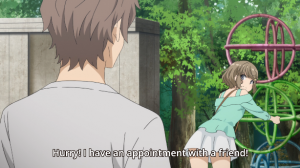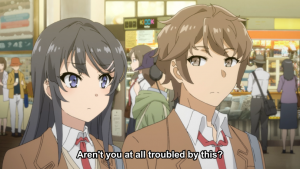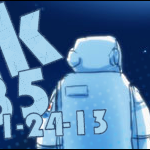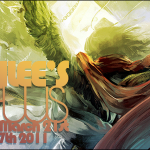The Wandering Witch Dreams of Bunny Girl Senpai

Welcome, all, again. After last season’s disheartening dearth of entertaining shows, I just can’t keep up this season’s bountiful offerings! One which I have been particularly enjoying is Rascal Does Not Dream of Bunny Girl Senpai, a rather unconventional rom-com. Mind you, all the normal ingredients are there: high school students; angst; little sisters; senpai and kouhai; and emotional excess. They’re just put together differently than we’ve been trained to expect. To begin with–and I realize full-well that I’m destroying some of your hopes, here–the protagonist is neither in love nor lust with his little sister. (Wow, that just killed some of you, didn’t it?) These siblings live together in an apartment they share, with him going to school and work and her staying home. And apart from her hikikomori lifestyle, they lead a pretty normal existence. It turns out that this wasn’t always the case, but things have settled down, allowing them to do the same.

You see, this is a show about what it means to exist as an individual, particularly as an individual in a complex and interconnected world. Likewise, it focuses upon the efforts and consequences of establishing that individual identity, a personal pilgrimage most often undertaken during adolescence. That said, it’s really the viewer’s own discretion as to whether to take the series’ storyline at face value as a story or instead as some grand metaphor for growing into adulthood. We are introduced to a group of students who have suffered various manifestations of a phenomenon called “Adolescence Syndrome,” which common thread seems to be a change in how the victim is perceived by others (making the condition very aptly named). It’s as though all that teenage angst climbed out through your ear, snatched you up by the collar, and started pimp-slapping you in front of everybody. Just all sorts of happy, dignified fun!

Our protagonist Sakuta is a quiet second-year in high school who is haunted by an incident that occurred during his middle school years. And while he is content to leave that behind him, it seems as though nobody else is. In fact, he is pretty well ostracized at school save for his friends Yuma Kunimi and Rio Futaba. So Sakuta knows what it’s like to be ignored–what he has never before considered, however, is that because his schoolmates are making a conscious effort to ignore him, they are themselves perpetuating an awareness of him; to wit, being ignored prevents any real possibility of being forgotten. He first notices and begins to comprehend the difference between the two states upon meeting Mai Sakurajima, a third-year student at his school who is on hiatus from show business. Mai is accomplished, smart, and stunningly beautiful. But as each day passes, fewer and fewer people can see her. She seems to be becoming invisible–worse, any references to her existence are likewise evaporating. She is somehow fading from existence as a whole, until her only tether to reality is Sakuta himself. Anything she wishes to accomplish in the real world must be done through his efforts–she cannot even purchase food for sustenance. What, they both wonder, will happen if he momentarily forgets her?

While unsure of a solution, Sakuta does at least believe he recognizes the problem, which he calls “Adolescence Syndrome.” And he believes that he recognizes it because this is not his first experience with it. His younger sister Kaede became the victim of online bullying and even death threats over her mobile phone, causing her to become withdrawn and develop a severe phobia of strangers. She only found peace by adopting a hikikomori lifestyle, and is now pretty well completely dependent upon her older brother (as above). Moreover, while Sakuta was trying to help Kaede navigate her unfolding situation, he was mysteriously wounded with three cuts across his chest; it was this incident and his subsequent hospitalization that made Sakuta the subject of frightening rumors and social ostracization. Fortunately for him, he had at least two friends who didn’t care about the herd mentality. But, alas, no such grace for Kaede or Mai, beyond Sakuta himself. And as the show progresses, we meet different characters enduring different manifestations of this merciless condition, each drowning in a sea of perceived indifference.
So if I might be allowed to conjecture, perception is key. Adolescence is a time of adjustment, when a person consciously attempts to create him/herself as the person s/he wishes to be. It is a time of near-alchemy, but these efforts do not occur in a vacuum; rather, they occur in full view of the squirming, judgmental mass of like beings undergoing like transformation. Panicked social censure hangs poised like Damocles’ sword, awaiting the slightest stir. This is a brilliant study of herd mentality and projected teenage angst!
















iStalk? uStalk!